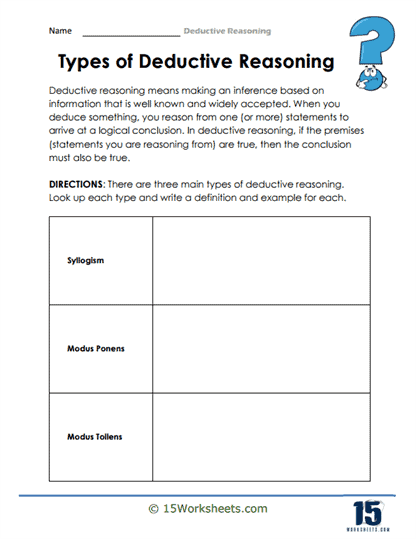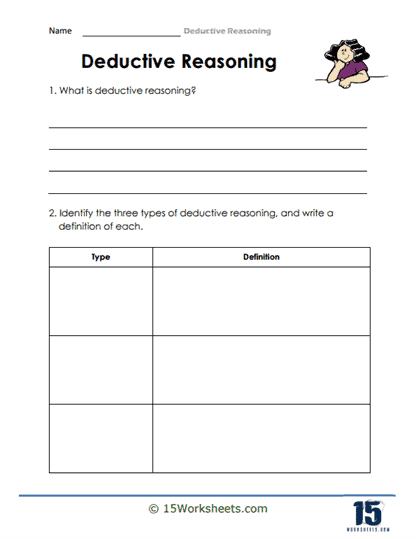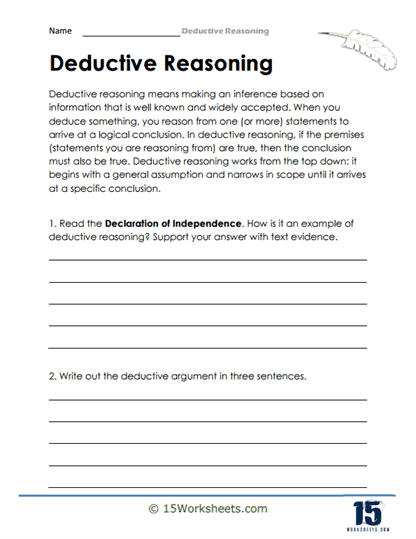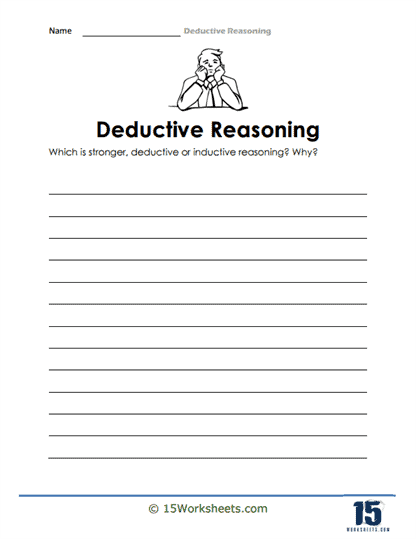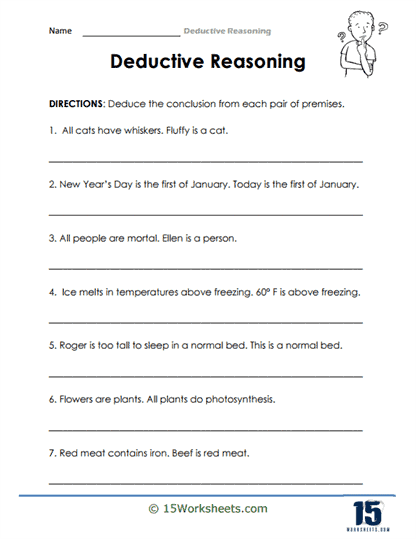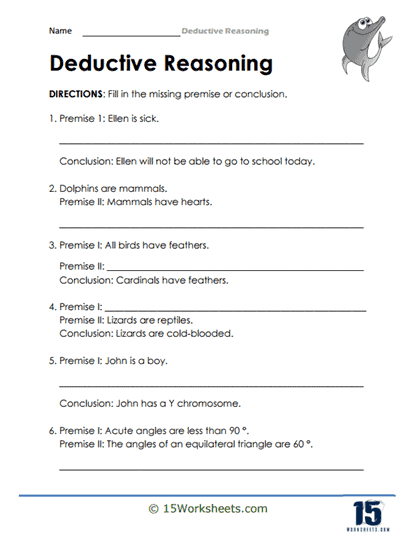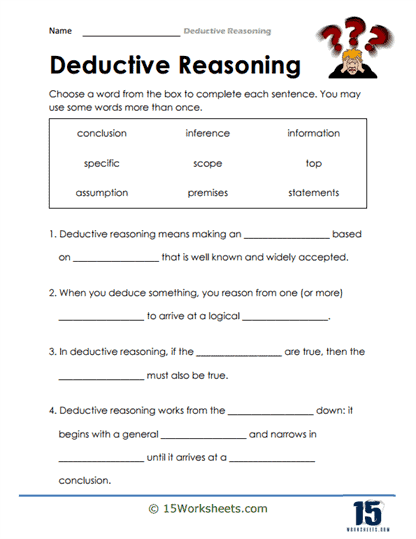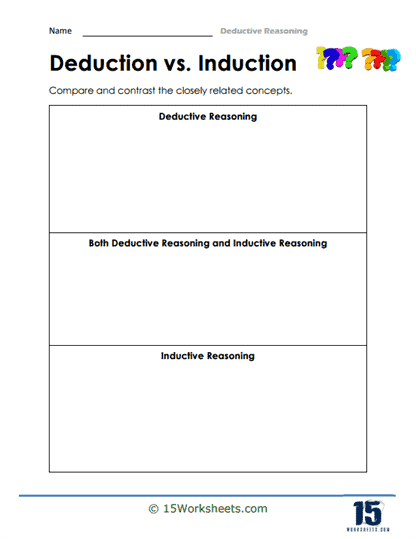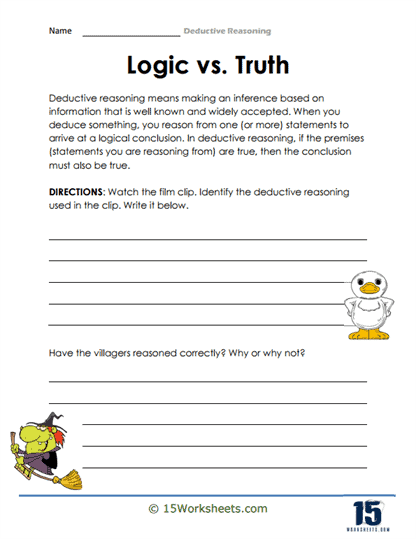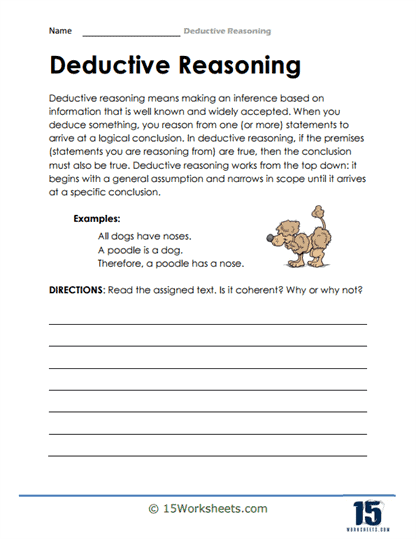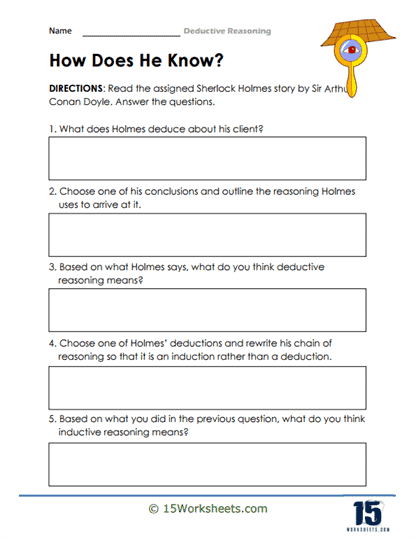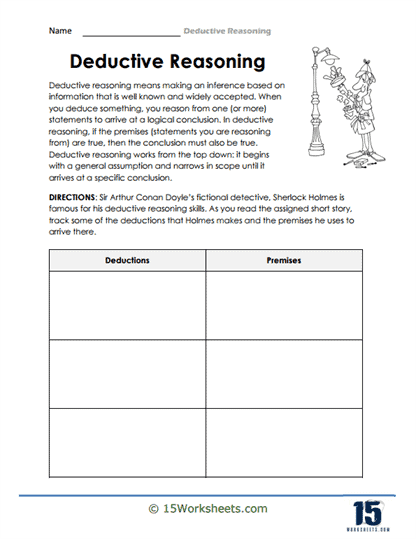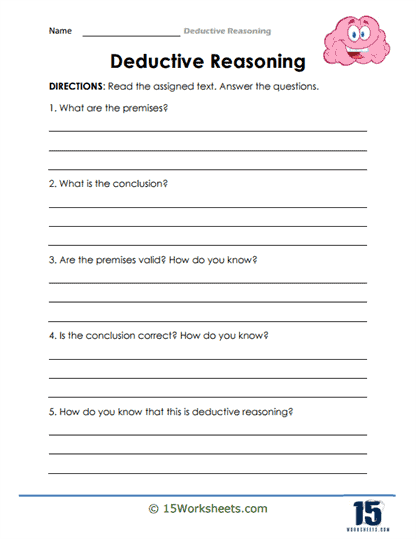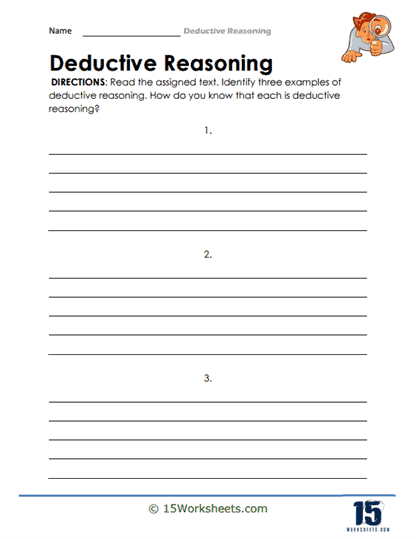Deductive Reasoning Worksheets
All About These 15 Worksheets
This series of 15 worksheets is designed to help students enhance their logical thinking and reasoning skills through deductive reasoning exercises. These worksheets provide a structured and engaging way for students to practice formulating valid arguments and drawing logical conclusions based on given premises. By working on the exercises, students can strengthen their analytical abilities, critical thinking, and problem-solving skills. Through these worksheets, students will:
- Learn about the basics of deductive reasoning, including premises, conclusions, and the concept of validity;
- Identify the three main types of Deductive Reasoning;
- Identify deductive arguments from assigned texts;
- Compare deductive with inductive reasoning;
- Deduce the conclusion from pairs of premises;
- Fill in the missing premises and conclusions, showing mastery on the concept of deductive reasoning;
- Distinguish logic from truth;
- And learn the principles of constructing sound arguments, including the use of premises and logical inference.
Overall, this series of Deductive Reasoning worksheets provides a comprehensive framework for students to develop and refine their deductive reasoning skills. By engaging in these exercises, students gain a deeper understanding of logical thinking, learn to evaluate the validity of arguments, and enhance their problem-solving abilities. These worksheets are designed to be interactive, thought-provoking, and accessible, enabling students to strengthen their deductive reasoning skills in an engaging and enjoyable manner.
How to Improve Your Deductive Reasoning
Deductive reasoning applies to people’s academic, work, and personal lives. It is most common among researchers and scientists. While many believe it is limited to academia, deductive reasoning has a much more significant role. If you want to know how to improve your deductive reasoning skills, you can try a few daily life practices.
What Is Deductive Reasoning?
Deductive reasoning is a logical approach that starts from general ideas and narrows down to specific conclusions. It is the process of drawing deductive inferences based on logical thinking.
You can use deductive reasoning to find links between new information and existing facts. This relationship helps you draw conclusions based on your logical approach.
Work on Observation Skills
Observation is the essential part of deductive reasoning. We observe many things daily. However, if you work on your observation skills, you may be able to achieve more than a basic understanding. When you find new information, think, understand, and relate to your existing knowledge. You may also do quick research to cross-check facts.
You may need to look for patterns, processes, and perceptions to understand the new information thoroughly.
Be More Curious
Everyone has a curiosity for new ideas and information. While it may help you develop a superficial understanding, you need to be more curious for in-depth learning. For example, if you hear about tea for the first time, you may be curious to find out what it is. However, a higher level of curiosity may require you to find out more details, including where it comes from, how it is made, and why it is used.
The more curious you are, the better your understanding will be. Curiosity plays a vital role in improving your deductive reasoning skills.
Split the Problems
Finding solutions to problems can be difficult when too many variables are involved. To solve the problem efficiently, you may need to break it into smaller parts. Splitting bigger problems enables you to focus on each variable separately. For example, if you want to find out how the roof of a building collapsed due to rainfall, you may need to break the problem into smaller questions.
To start with, you can check the quality of construction. You may also see if the roof of the building had cracks before. By evaluating minor problems, you can improve your deductive reasoning.
Mind Exercise Games
Have you ever played mind exercise games? If yes, you may have an idea of how engaging they can be. Mind exercise games trigger critical thinking, pushing you to dig deeper into the problems. Activities like puzzles, number games, finding your way out games, and building block games can help you improve your analytical thinking skills.
You can also learn to work under pressure by playing mind exercise games. If you want, you can try one of the many games available online. Each game may engage a different part of your brain.
Create Scenarios
One of the effective methods on the list is to create scenarios. You can create unique stories and plots for movies. You can replicate scenarios to develop your story if you like to watch thrillers. You can start by creating a draft. Read it from your audience’s perspective and find the story’s loopholes. By connecting multiple scenarios, you can create a compelling story.
Creating scenarios can help you improve your critical thinking. They also help to increase your curiosity about different concepts.


